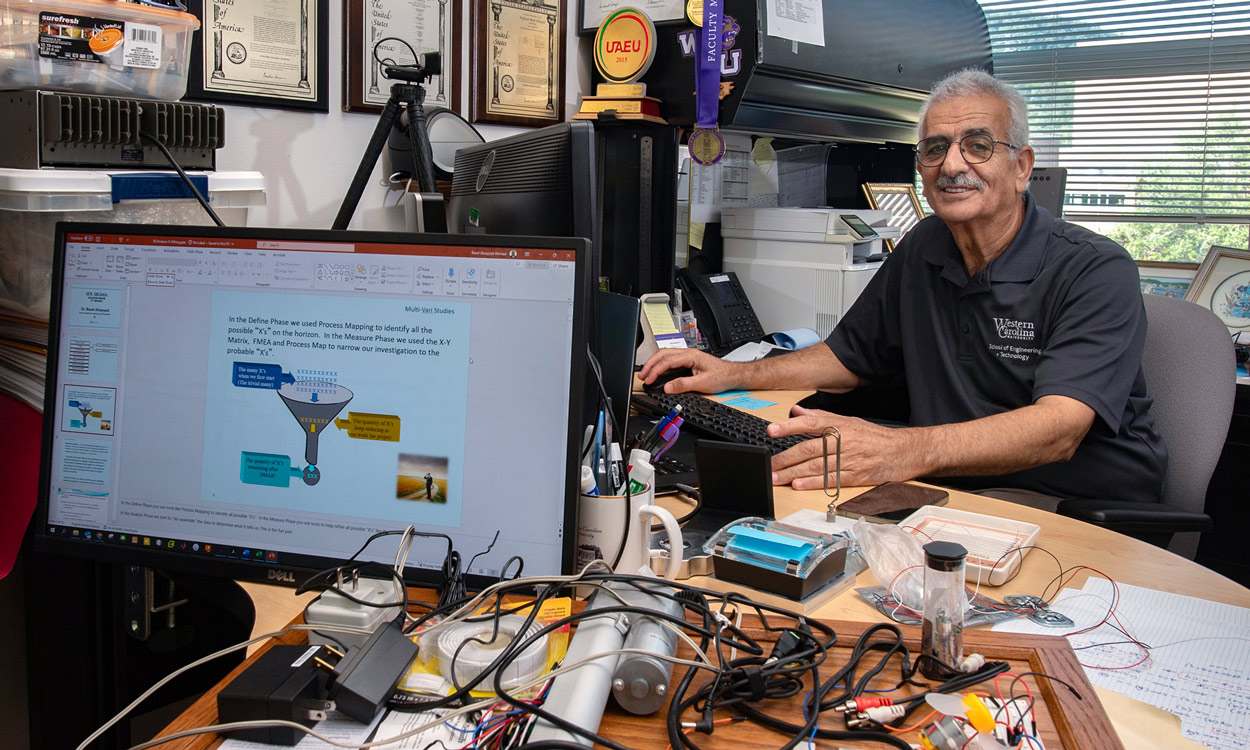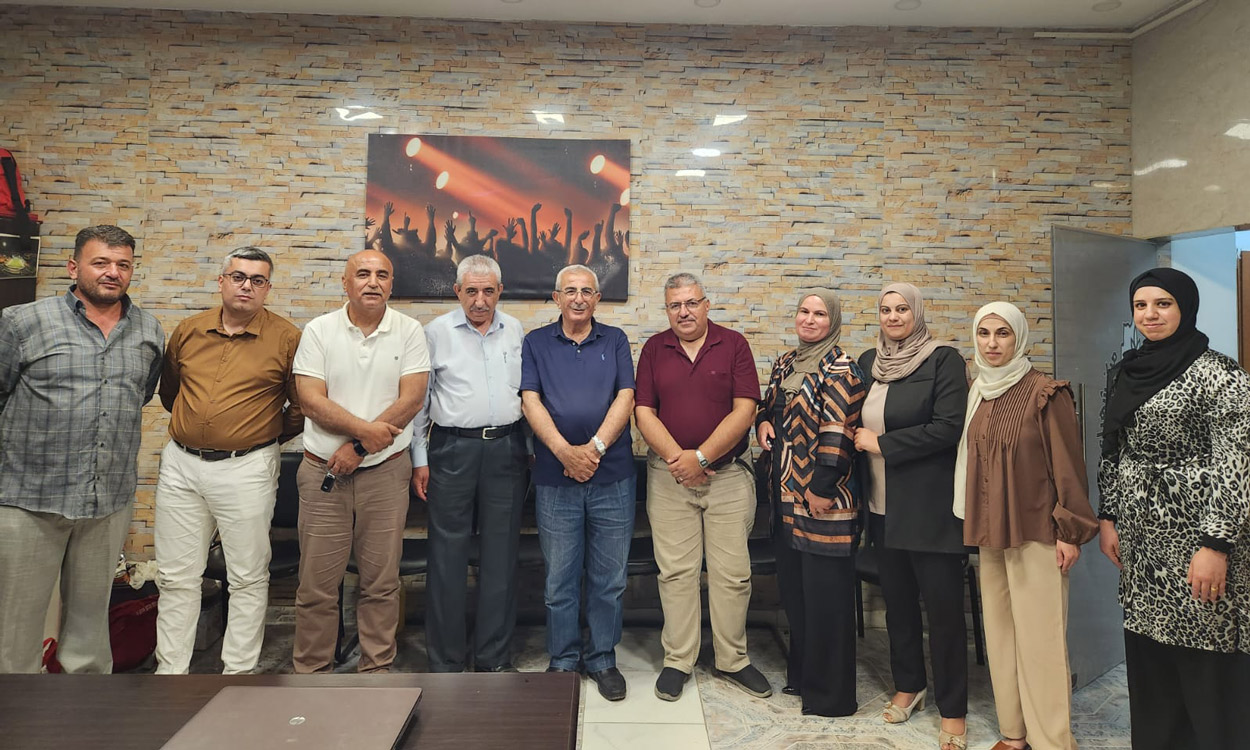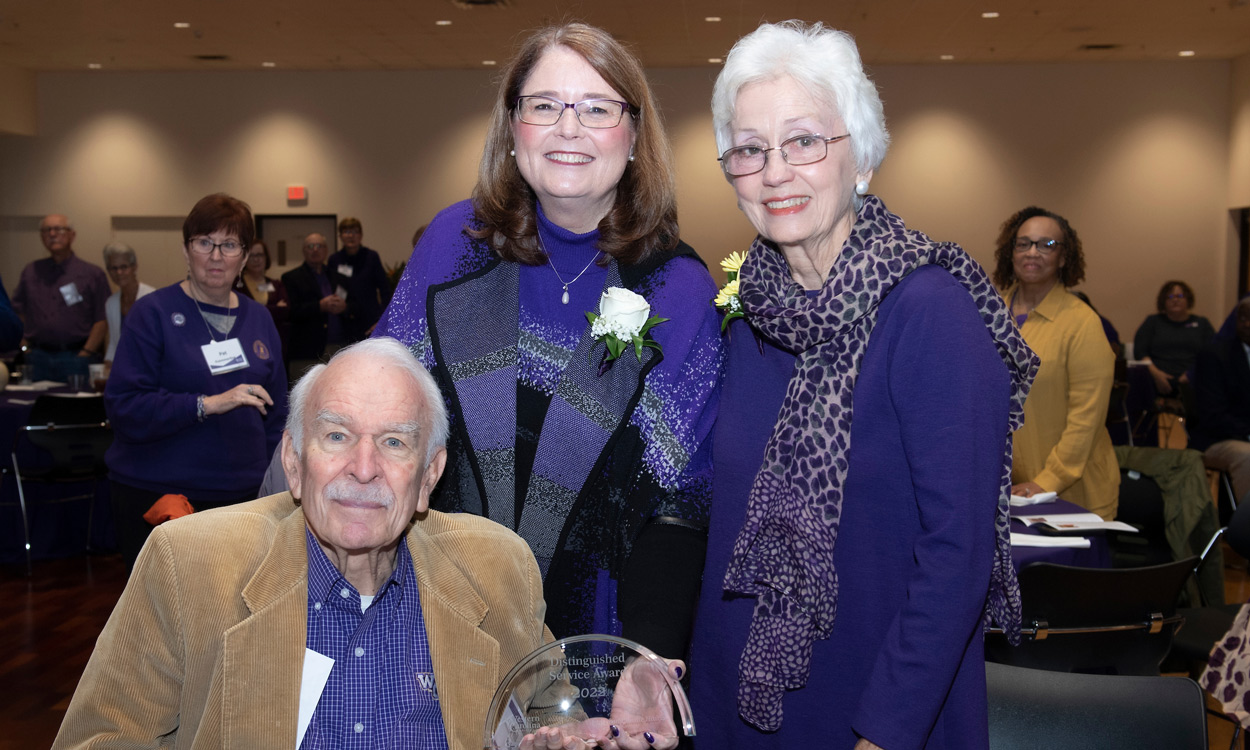Assistant professor in College of Engineering and Technology teaches Lean Six Sigma series to students in Palestine

Basel Alsayyed Ahmad
By Brooklyn Brown
Basel Alsayyed Ahmad, assistant professor in Western Carolina University’s College of Engineering and Technology, recently taught a series of courses on Lean Six Sigma to students in Palestine.
The students earned a Lean Six Sigma Green Belt certification. The course was administered through WCU’s Educational Outreach.
“I am originally from Palestine and from the same town as the students, Dura,” Ahmad said. “I had five students on the other side of the world where I’m from.”
Ahmad taught Lean Six Sigma, a process improvement strategy, to a group of professionals hoping to hone their skills. “Lean Six Sigma is a strategy for continually improving on whatever we are doing in every aspect of our life – in manufacturing, in teaching, in training, even in your personal life,” he said. “If something doesn't add value, you are wasting your resources for nothing, basically.”

From left to right: Saed Dasa; Ihab Sharha; Akram Awawda; Fareed Sayyed; Mohammad Sayed Ahmed; Ali Abuznaid; Eng. Mariam Abu Atwan; Heba Sharha; Reem Abd Allatif; Eng. Rawan Alnajar.
The students completed a final project that will help hospitals in Palestine save money and provide medicine more efficiently.
“In the project we did, the idea was very simple,” Ahmad said. “In a hospital, they looked at one of the medicines they use and it comes in sizes of 10 milligrams. They use part of it sometimes for the patient and they throw the rest away. In order to throw the rest away, because it was a controlled medicine, two nurses had to be in attendance and do the paperwork and dispose of it in a certain process that is time consuming.
“The improvement was just to introduce five milligrams instead of 10. That one improvement will save about $300,000 a year.”
Wes Stone, professor and director of the School of Engineering and Technology, is impressed with the outcome of the course.
“I’m very grateful to Dr. Callaghan and Educational Outreach for their support, and especially to Dr. Alsayyed for his time and commitment to delivering this very important topic around the globe,” Stone said. “Lean Six Sigma principles apply across all industries in all countries. It’s comforting to know that Palestinian health care will be improved directly as a result of this training.”
Ahmad sees this as a positive move forward not just for his students and himself, but for the campus community as a whole.
“I felt like it was kind of a win-win-win situation. I'm very happy that we managed to establish this channel for Western,” he said.
“We managed to help people wherever they are. They will be better equipped professionals. They'll be better serving their community and humanity at large, which is our scope as engineers.”

